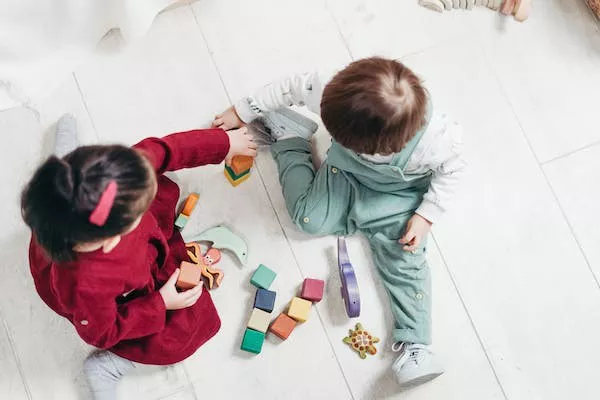In the dynamic landscape of early childhood education, finding the perfect preschool for your 2-year-old can be a pivotal decision that shapes their future learning experiences. As parents, we aim to provide the best foundation for our children, and selecting the right preschool is a crucial step in this journey. In this comprehensive guide, we will delve into the key factors to consider when choosing a preschool for 2-year-olds, ensuring that the foundation laid is not only educational but also nurturing and developmentally appropriate.
1. Developmentally Tailored Curriculum: Nurturing Young Minds
The cornerstone of an effective preschool experience for 2-year-olds lies in a developmentally tailored curriculum. Look for a preschool that embraces a curriculum designed to stimulate cognitive, emotional, and social growth. From basic motor skills to early cognitive development, a well-structured curriculum will lay the foundation for lifelong learning.
Cognitive Stimulation: Fostering Curiosity
A quality preschool for 2-year-olds integrates activities that promote cognitive development. This includes age-appropriate puzzles, storytelling, and interactive games. Cognitive stimulation at this stage sets the stage for future academic success.
Social Interaction: Building Early Connections
Socialization is a key aspect of preschool education. Choose a preschool that encourages positive social interactions through group activities, playtime, and collaborative projects. These early interactions help in developing essential social skills and emotional intelligence.
Emotional Development: Creating a Secure Environment
An environment that supports emotional development is crucial for 2-year-olds. Preschools that prioritize creating a secure and nurturing atmosphere help children build trust and develop a positive attitude towards learning.
2. Experienced and Qualified Staff: The Heart of Preschool Education
The success of any preschool program hinges on the expertise and dedication of its staff. When considering a preschool for your 2-year-old, pay close attention to the qualifications and experience of the teaching staff.
Qualified Teachers: Nurturing Expertise
A team of qualified teachers, with a background in early childhood education, ensures that your child is in capable hands. Look for educators who understand the unique needs of 2-year-olds and employ effective teaching strategies.
Low Teacher-to-Child Ratio: Individualized Attention
Preschools with low teacher-to-child ratios provide a more personalized learning experience. This allows teachers to give individual attention to each child, fostering a supportive and conducive learning environment.
Continuous Professional Development: Staying Current
A commitment to continuous professional development among the teaching staff is a positive sign. It ensures that educators stay abreast of the latest research and methodologies in early childhood education, enhancing the overall quality of the preschool program.
3. Safe and Stimulating Physical Environment: Learning Through Exploration
The physical environment plays a pivotal role in shaping a child’s early learning experiences. When evaluating preschools, prioritize those that offer a safe and stimulating space for exploration and discovery.
Safety Measures: A Secure Haven
Safety should be a top priority. Ensure that the preschool follows stringent safety measures, including childproofing, secure entry points, and a well-maintained outdoor play area.
Creative Learning Spaces: Inspiring Imagination
Look for preschools with creatively designed learning spaces. Bright colors, age-appropriate educational materials, and interactive zones contribute to an environment that sparks imagination and curiosity.
Outdoor Play Areas: Physical Development
Adequate outdoor play areas are essential for the physical development of 2-year-olds. A well-designed playground not only encourages physical activity but also provides opportunities for socialization and gross motor skill development.
4. Parental Involvement: A Collaborative Approach to Learning
The relationship between parents and preschool plays a crucial role in a child’s educational journey. Opt for a preschool that encourages and values parental involvement.
Open Communication Channels: Bridging Gaps
Choose a preschool that maintains open and transparent communication channels. Regular updates on your child’s progress and opportunities for parent-teacher conferences facilitate a collaborative approach to your child’s education.
Parental Workshops: Building a Supportive Community
Preschools that organize workshops and seminars for parents create a supportive community. These events provide valuable insights into child development, parenting strategies, and ways to enhance the learning experience at home.
Volunteer Opportunities: Active Participation
Look for preschools that offer volunteer opportunities for parents. Active participation in school activities strengthens the bond between home and school, creating a holistic support system for your child’s development.
In conclusion, choosing the right preschool for your 2-year-old is a decision that requires careful consideration of various factors. By prioritizing a developmentally tailored curriculum, experienced and qualified staff, a safe and stimulating physical environment, and fostering parental involvement, you set the stage for a positive and enriching early childhood education experience. Remember, the preschool years are a crucial time in your child’s development, and the right choice can pave the way for a lifetime of learning success.


